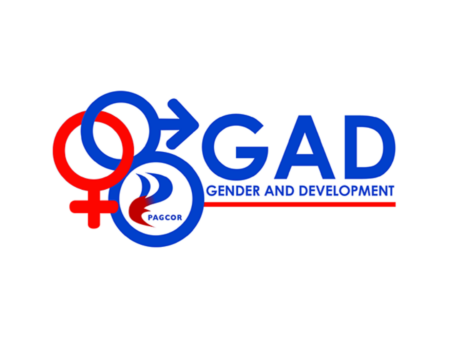The Philippine Amusement and Gaming Corporation (PAGCOR) has officially confirmed that the work permits for both foreign and local employees working for Philippine offshore gaming operators (POGOs) will only remain valid until the end of 2024. This directive, which extends to all individuals employed under the offshore gaming employment licenses issued to workers of internet gaming licensees (IGLs), is a significant move following the nationwide POGO ban announced by the President of the Philippines during his State of the Nation Address (SONA).
Impact of the Nationwide POGO Ban on Work Permits
The newly instituted regulation stipulates that all work permits associated with POGOs, including those granted to workers under IGLs, will be valid only until December 31, 2024. This is a considerable shift from the previous arrangement where licenses granted to POGOs were valid for three years. The change has sparked considerable discussion, particularly regarding its potential economic and social implications.
PAGCOR’s CEO, Alejandro Tengco, approved the adjustment as part of the organization’s compliance with the President’s orders. However, Tengco has publicly voiced his concerns about the repercussions of this decision, specifically highlighting the projected loss of PHP 23 billion ($0.41 billion) in revenue for PAGCOR and the subsequent loss of approximately 40,000 local jobs. These figures underscore the significant impact that the POGO ban is expected to have on the Philippine economy.
Deadline for POGO Employees to Leave the Philippines
Following the announcement of the POGO ban on July 22, all POGO employees, particularly foreign workers, were given a strict deadline of 60 days from July 26 to leave the Philippines. Failure to comply with this mandate could result in penalties, including deportation. Local authorities have been actively encouraging the public to report any illegal POGO workers in their communities, leading to swift deportation of those caught without valid permits.
This crackdown on POGO employees is part of a broader effort by the Philippine government to address the negative consequences associated with the offshore gaming industry, including issues related to illegal activities, crime, and the exploitation of foreign workers. The government’s stance is clear: illegal operations will not be tolerated, and those who do not comply with the law will face severe consequences.
Appeal for Outsourcing Companies Serving US and UK Operations
In the wake of the POGO ban, PAGCOR has appealed to the government to spare outsourcing companies that provide services to US and UK operations. These companies, which have been integral to the functioning of the global gaming industry, are at risk of being adversely affected by the ban. PAGCOR’s appeal highlights the complexity of the situation, as the ban on POGOs could have far-reaching consequences beyond the borders of the Philippines.
The outsourcing sector has been a vital component of the Philippine economy, providing employment opportunities to thousands of Filipinos and contributing significantly to the country’s GDP. The potential loss of these jobs, coupled with the revenue losses already anticipated due to the POGO ban, could have a profound impact on the country’s economic stability.
The Future of Offshore Gaming in the Philippines
As the December 2024 deadline approaches, the future of offshore gaming in the Philippines remains uncertain. While the government’s stance on POGOs is firm, there is still a possibility that certain aspects of the industry could be salvaged, particularly if PAGCOR’s appeals are taken into consideration.
The offshore gaming industry has been a controversial topic in the Philippines for years, with proponents arguing that it provides much-needed revenue and employment, while opponents cite concerns about its social and economic impact. The recent developments surrounding the POGO ban are likely to reignite this debate, as stakeholders on both sides weigh the potential benefits and drawbacks of the government’s decision.
Potential Economic Impact
The projected PHP 23 billion ($0.41 billion) revenue loss for PAGCOR is just one aspect of the broader economic impact that the POGO ban is expected to have. The loss of 40,000 local jobs is another significant concern, particularly in a country where unemployment rates have been a persistent issue.
The POGO industry has been a major contributor to the Philippine economy, providing not only direct employment but also supporting industries such as real estate, hospitality, and retail. The sudden shutdown of this industry could lead to a ripple effect, with job losses and business closures extending far beyond the gaming sector.
Social and Legal Implications
In addition to the economic impact, the POGO ban also raises several social and legal concerns. The deportation of foreign workers, many of whom may have been living and working in the Philippines for years, is a sensitive issue. There are concerns about how these individuals will be treated during the deportation process, as well as the potential for human rights violations.
Furthermore, the ban could lead to an increase in illegal offshore gaming operations, as those who are unwilling or unable to comply with the new regulations may seek alternative ways to continue their activities. This could exacerbate existing issues related to crime and corruption within the industry, making it even more difficult for the government to enforce its regulations.
Conclusion: The Decision
The decision to limit the validity of work permits for POGO employees until the end of 2024 marks a significant turning point for the offshore gaming industry in the Philippines. While the government’s stance on POGOs is clear, the broader implications of this decision are still unfolding. As the deadline approaches, it will be important to monitor the impact of the ban on the Philippine economy, as well as the potential for further developments in the offshore gaming sector.
FAQs About PAGCOR Confirms Limited Validity for Work Permits of POGO Employees Amid Nationwide Ban
1. What is the recent announcement by PAGCOR regarding POGO employees?
PAGCOR has announced that the work permits for both foreign and local employees of Philippine offshore gaming operators (POGOs) will be valid only until December 31, 2024. This includes employees hired under offshore gaming employment licenses (IGLs).
2. Why are the work permits of POGO employees only valid until the end of 2024?
The decision to limit the validity of work permits until the end of 2024 is part of PAGCOR’s compliance with the nationwide POGO ban announced by the Philippine President during his State of the Nation Address (SONA). This ban is aimed at curbing the negative impacts of the offshore gaming industry in the country.
3. How long were POGO licenses valid before this new regulation?
Prior to the implementation of this new regulation, POGO licenses had a validity of three years. The new policy significantly reduces this period, aligning it with the government’s decision to phase out POGO operations by the end of 2024.
4. What are the consequences for POGO employees who do not leave the Philippines by the deadline?
POGO employees, particularly foreign workers, who do not leave the Philippines by the deadline of 60 days from July 26, 2024, may face penalties, including deportation. The government has also encouraged the public to report illegal POGO workers to authorities.
5. What impact is the POGO ban expected to have on the Philippine economy?
The POGO ban is projected to result in a loss of PHP 23 billion (approximately $0.41 billion) in revenue for PAGCOR and the loss of around 40,000 local jobs. The ban is also expected to have ripple effects on other industries, such as real estate, hospitality, and retail.
6. Has PAGCOR appealed any aspects of the POGO ban?
Yes, PAGCOR has appealed to the government to spare outsourcing companies that serve US and UK operations from the POGO ban. These companies are a significant part of the Philippine economy, and the ban could adversely affect them.
7. What are the potential social and legal implications of the POGO ban?
The POGO ban could lead to the deportation of many foreign workers, raising concerns about human rights and the treatment of these individuals. Additionally, there is a risk that the ban could lead to an increase in illegal offshore gaming operations, exacerbating issues related to crime and corruption.
8. What is the deadline for POGO employees to leave the Philippines?
POGO employees, especially foreign workers, have been given a 60-day deadline from July 26, 2024, to leave the Philippines. Those who do not comply by this deadline may face penalties and deportation.
9. What is the future outlook for offshore gaming in the Philippines?
The future of offshore gaming in the Philippines is uncertain. While the government has taken a firm stance against POGOs, the industry’s complete shutdown may have significant economic and social consequences, leading to further developments in the coming months.


















